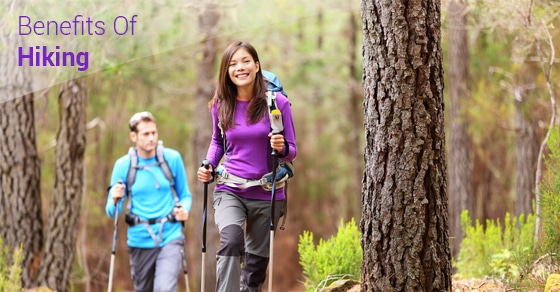If you’ve been feeling bored by the repetitive nature of your gym routine, have walked every trail and sidewalk in your neighbourhood or maybe just haven’t found the workout that suits you best, hiking might be the next-level exercise experience you’ve been looking for.
Hiking can be a new and exciting way to escape from your daily routine while also improving your physical and mental health. The Centers for Disease Control and Prevention (CDC) recommends at 30 minutes of daily moderate-intensity exercise several days per week. This could easily be achieved with a low-intensity, two-mile hike.
Read below to see the top benefits of hiking and to learn some tips to ensure safety:
Weight loss
If this is your exercise goal, regular hiking will not only help you lose weight initially but it will also help you keep it off. For example, a person weighing 200 pound will burn 312 calories while hiking for one hour at a 2 mph pace.
Improve cholesterol
While studies can’t say why, It has been proven that hiking and physical activity in general increases high-density lipoprotein (HDL) – “good” cholesterol – in your blood. This will ultimately reduce your risk of heart disease.
Blood pressure
Hiking will open up your arteries, which lowers blood pressure and in turn takes stress away from your heart. For patients in one clinical study, walking 30 minutes a day, three days a week significantly reduced their blood pressure levels.
Reduce Stress
Fresh air and sunshine has been proven to decrease tension and anxiety, regardless of the length or intensity of a hike.
However, like any form of exercise, you face the risk of muscle and joint pains. Using proper equipment, like well-fitted hiking shoes and sturdy poles, will reduce your risk of blister or knee injuries.
Similarly to training for a marathon, you’ll want to make sure you’re up to the task of a particularly strenuous hike. Conditioning exercises will help improve your stability and prevent injuries. As well, you should start with shorter hikes and work your way up if you’re new to this form of exercise. Taking breaks and drinking lots of water will keep you and your body safe.
Hiking is a great way to achieve any goal you’ve set for your physical or mental health. Talking to a physiotherapist will ensure any injuries you have currently or could face while hiking are assessed so you can get started.


